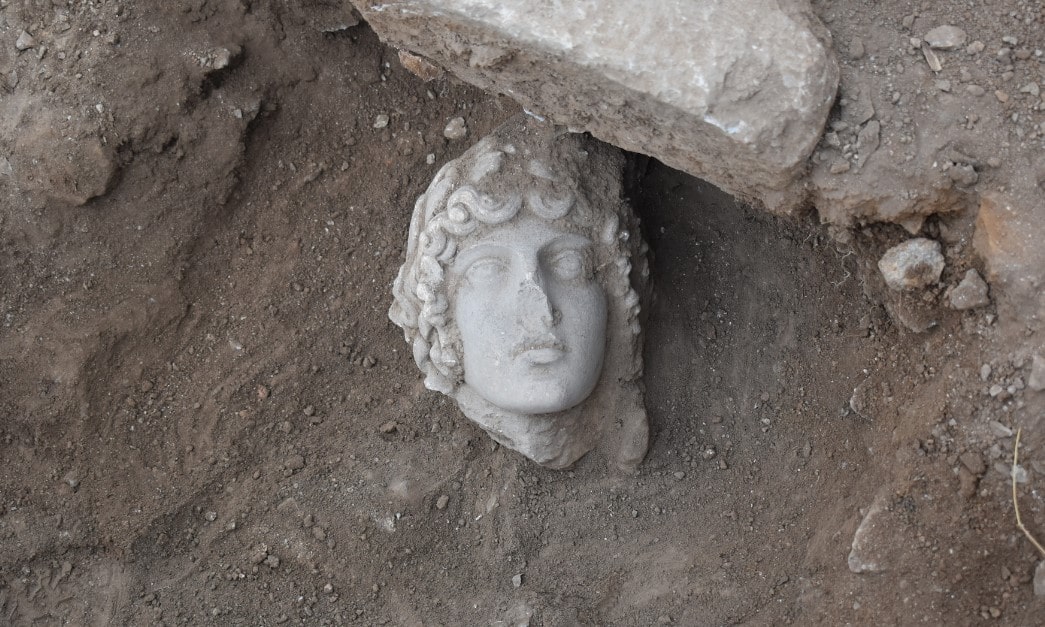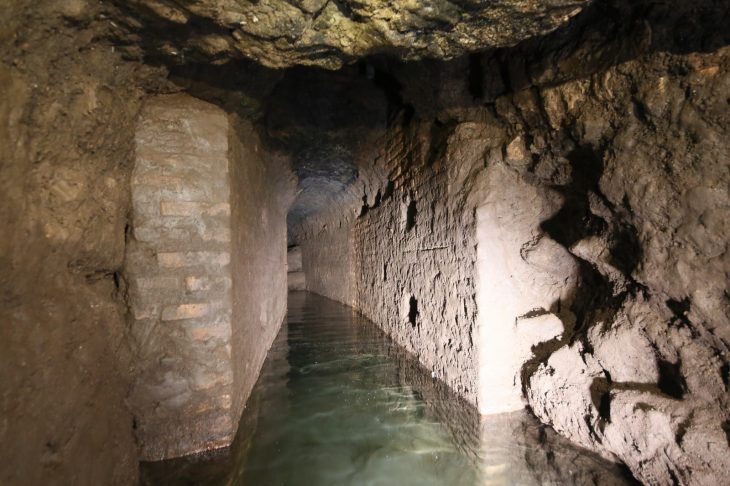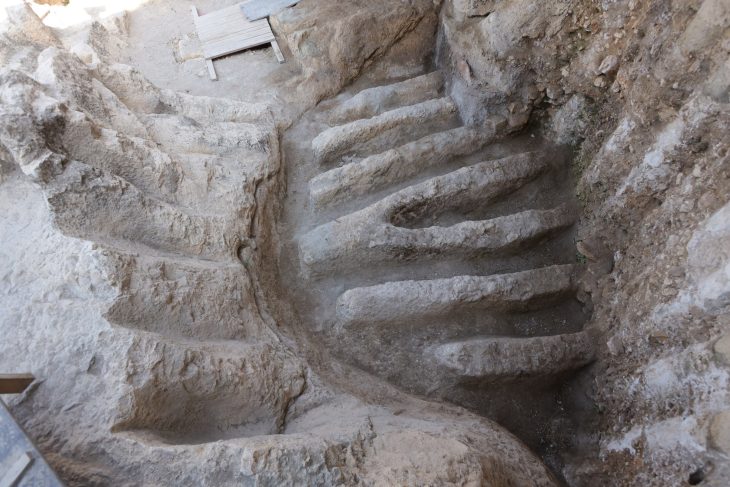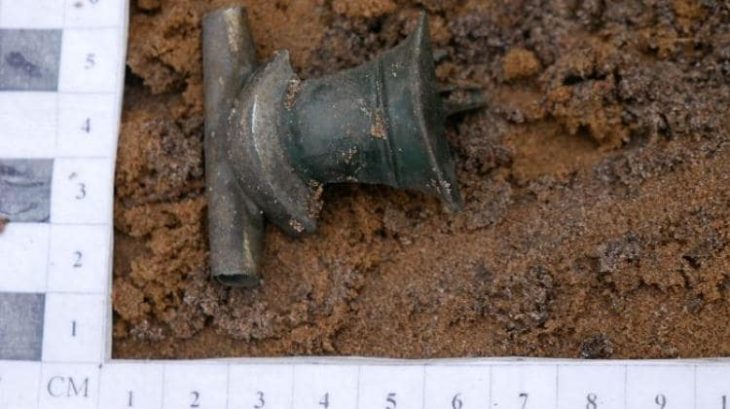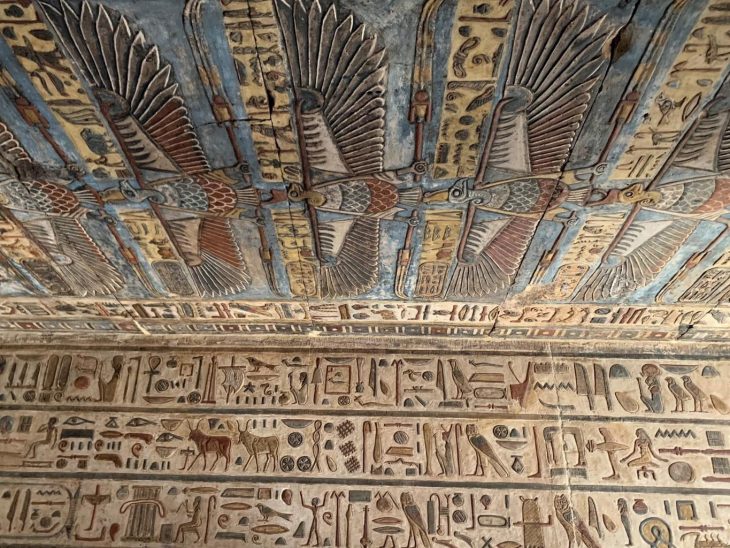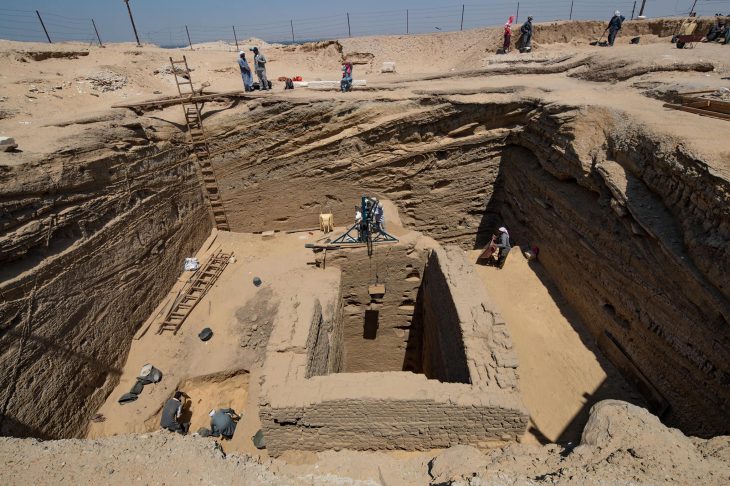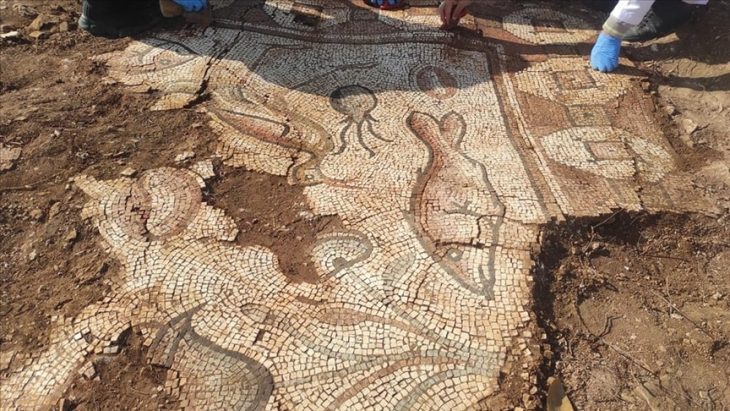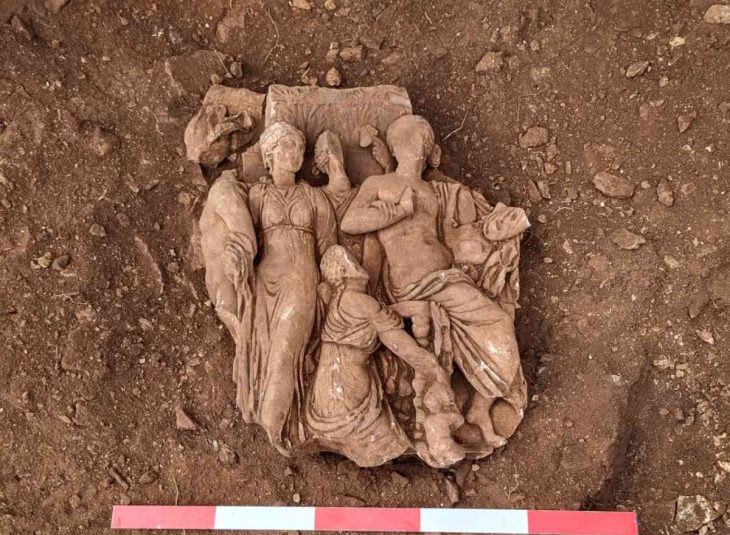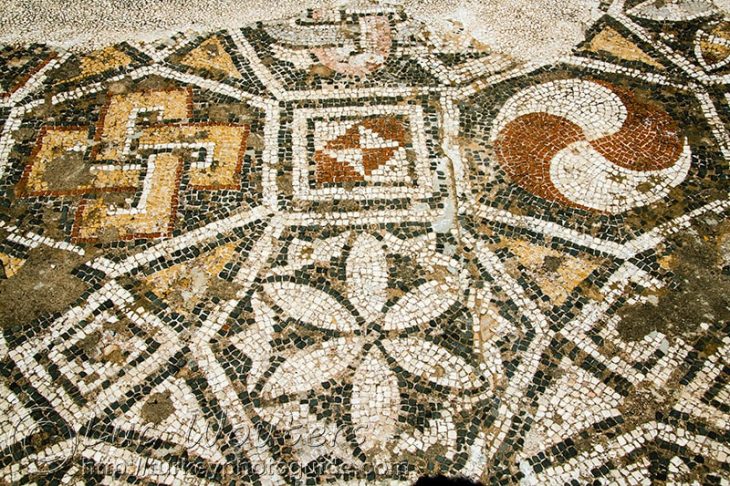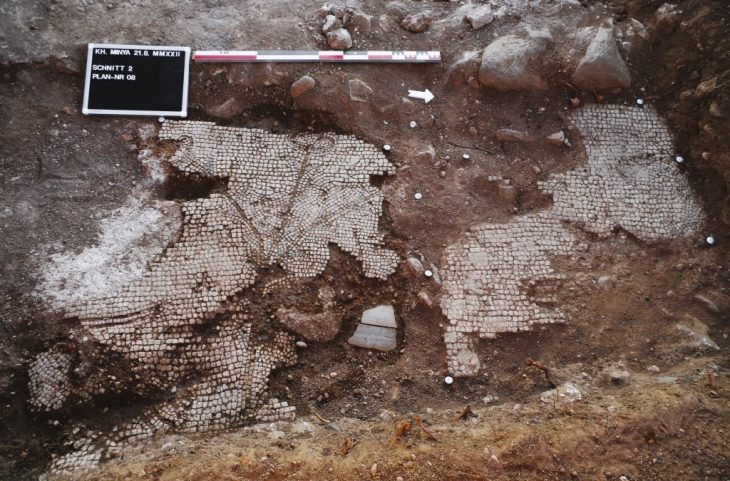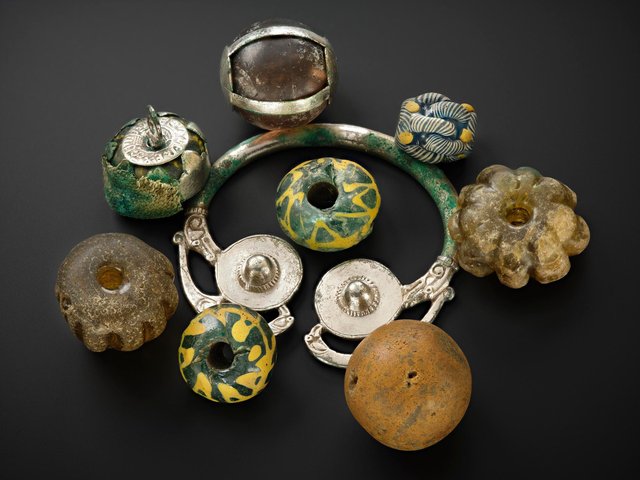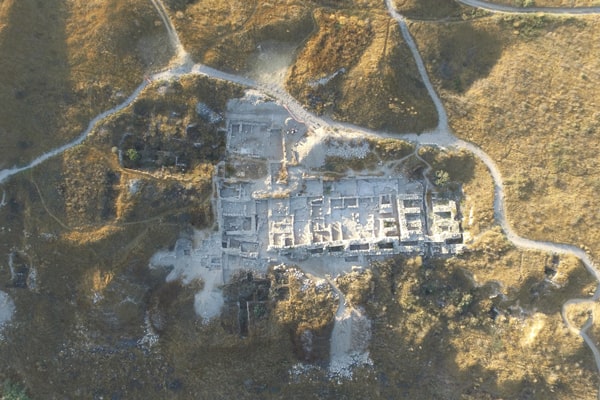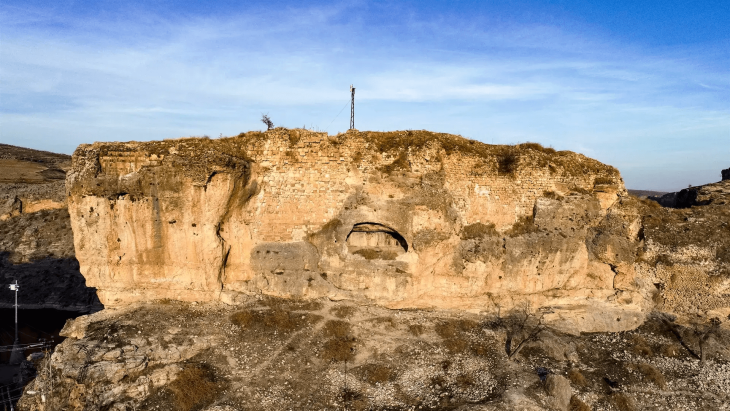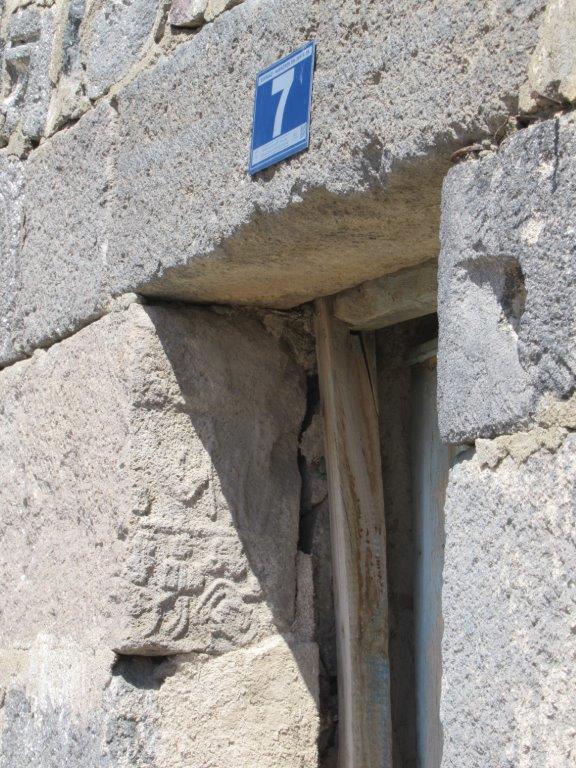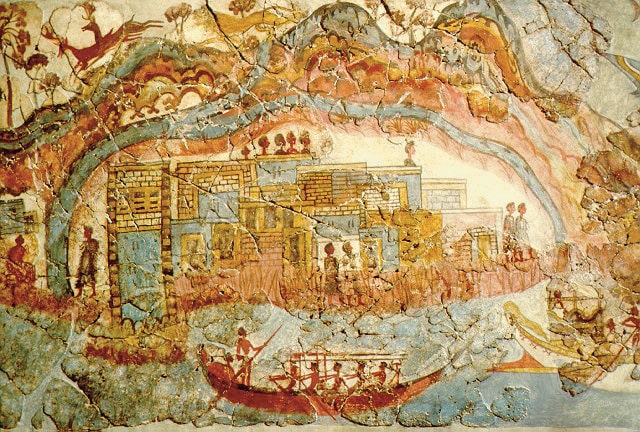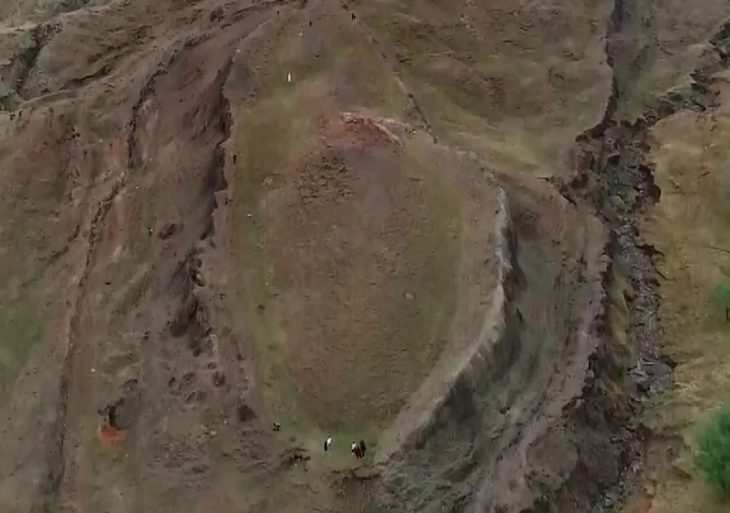The excavation, carried out by a group of students of the Aristotle University of Thessaloniki in the archaeological site of Philippi Kavala, brought to light important findings. Among other things, they discovered a rare head of Apollo dating back to the 2nd or early 3rd century AD.
The statue dates back to the 2nd or early 3rd century AD and it probably adorned an ancient fountain.
Natalia Poulos, Professor of Byzantine Archaeology, led the excavation, which included fifteen students from the Aristotle University of Thessaloniki (11 undergraduates, 2 master’s, and 2 PhD candidates), Assistant Docent Anastasios Tantsis, and Professor Emeritus of Byzantine Archaeology Aristotle Mendzo.
Archaeologists say, this year the excavation continued east of the southern main road (decumanus) at the point where it meets the northern axis of the city (the so-called “Egnatia”). The continuation of the marble-paved road was revealed, on the surface of which a coin (bronze phyllis) of the emperor Leo VI (886-912) was found, which helps to determine the duration of the road’s use. At the point where the two streets converge, a widening (square) seems to have been formed, dominated by a richly decorated building.
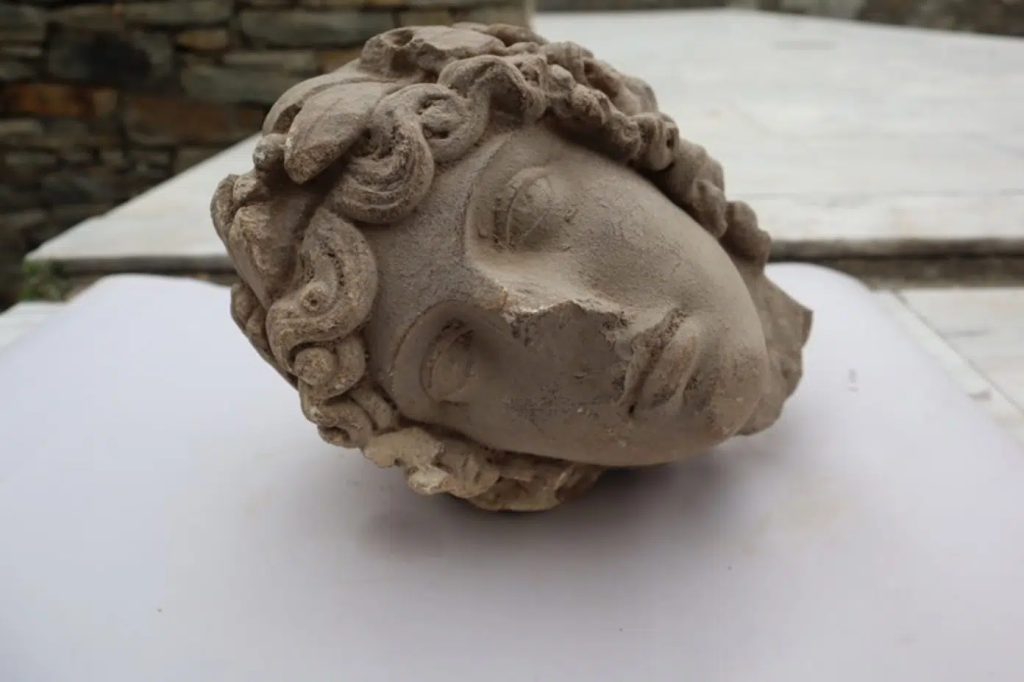
Archaeologists say evidence from last year’s excavations leads them to assume it was a fountain. The findings of this year’s research confirm this view and help them better understand its shape and function.
The research of 2022 brought to light part of the rich decoration of the fountain with the most impressive statue depicting Hercules as a boy with a young body.
The recent excavation (2023) revealed the head of another statue: it belongs to a figure of an ageneous man with a rich crown topped by a laurel leaf wreath. This beautiful head seems to belong to a statue of the god Apollo. Like the statue of Hercules, it dates from the 2nd or early 3rd century AD and probably adorned the fountain, which took its final form in the 8th to 9th centuries.
In classical Greek and Roman religion and mythology, Apollo is one of the Olympian gods. He is revered as a god of poetry, the Sun and light, healing and illness, music and dance, truth and prophecy, and archery, among other things.
Philip II, King of Macedon, founded the ancient city of Philippi in 356 BC on the site of the Thasian colony of Crenides near the Aegean Sea. The archaeological site was designated a UNESCO World Heritage Site in 2016 for its outstanding Roman architecture, urban layout as a smaller reflection of Rome itself, and significance in early Christianity.
Cover Photo: Greece Ministry of Culture

